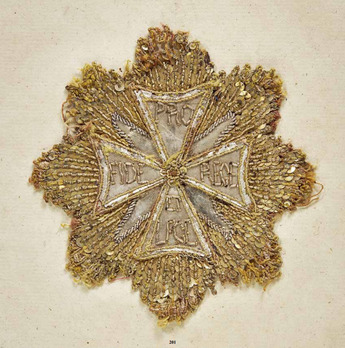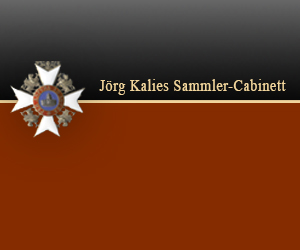Order of the White Eagle, Breast Star (1709-1764)
CATEGORY: Version
SKU: 01.POL.0101.103.01.000
Estimated market value:

Estimated market value:
The Order of the White Eagle was established by King Augustus II in 1705. It was abolished following the Third Partitioning of Poland in 1795 and was not awarded again until 1807 when it was revived by the Duchy of Warsaw. It was awarded from 1815-1831 by Tsar Alexander I ruling as King of Poland before it was taken over by the Russian Empire in 1831. It was not awarded again until 1921 following the restoration of Polish independence. From 1941-1992, it was awarded by the Government of the Republic of Poland in exile, and it was officially reinstated as the highest order of the Polish Republic in 1992.
The Order is conferred upon Polish citizens and foreigners in recognition of outstanding contributions to the nation. It may also be awarded posthumously. The President of the Republic is Grand Master.
The Breast Star was introduced along with the Cross in 1709. The first model, awarded from 1709-1764, is embroidered and features an obverse inscription that translates to “For Faith, King and Law.” The version worn by the King has diamonds and semi-precious stones with an inscription that translates to “For Faith, Nation, and Law.” The second model was awarded during the reign of Stanisław August Poniatowski and by the Duchy of Warsaw. It features the same inscription as the first model, but it is entirely metallic. The third model has been awarded since 1921 and features initials that stand for "Rzeczpospolita Polska" (Republic of Poland) in the medallion with an additional inscription that translates to “For Fatherland and the Nation."
There may be additional versions of the Breast Star that vary in size or composition.
The later versions are listed in the Orders of the Second Polish Republic (1918-1939) and the Government of the Republic of Poland in Exile (1939-1989), and the Third Polish Republic (1989-). See also the Order of the White Eagle in the Orders of Imperial Russia (1721-1917).

Comments
Sign in to comment and reply.


Scroll Top